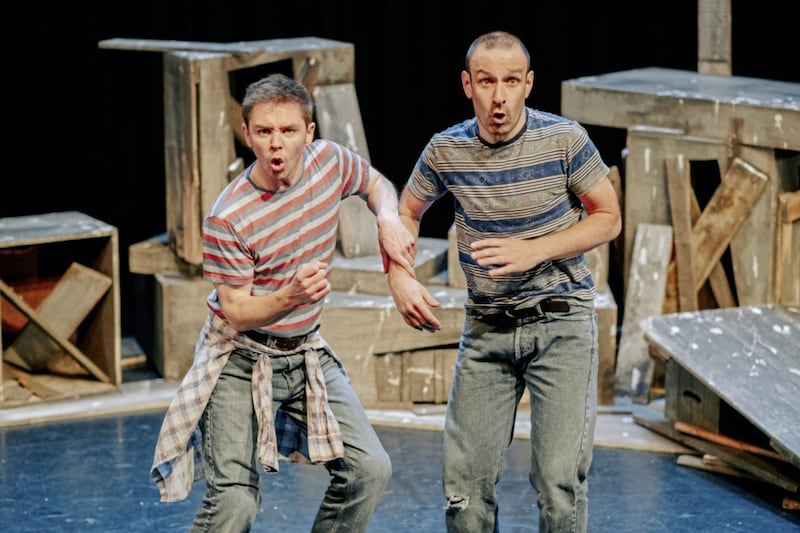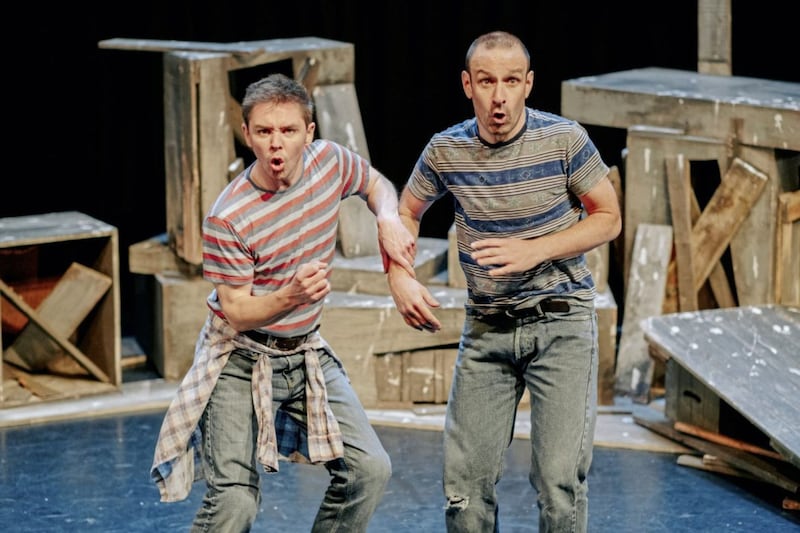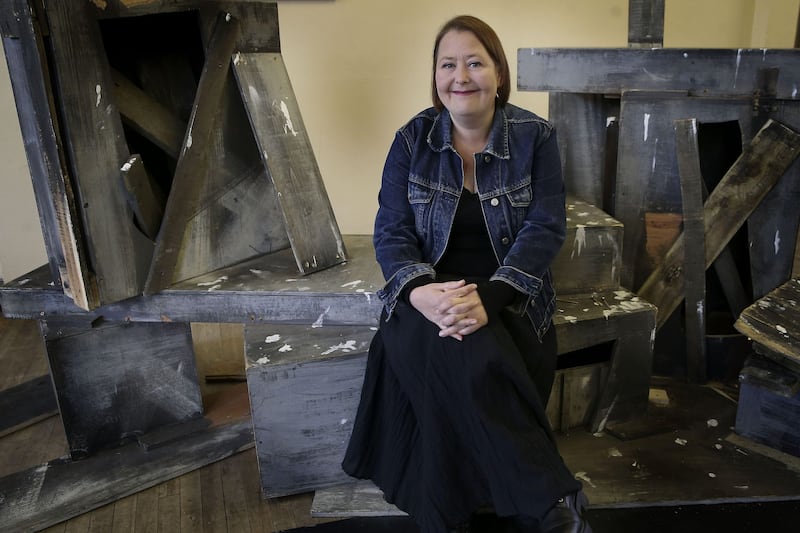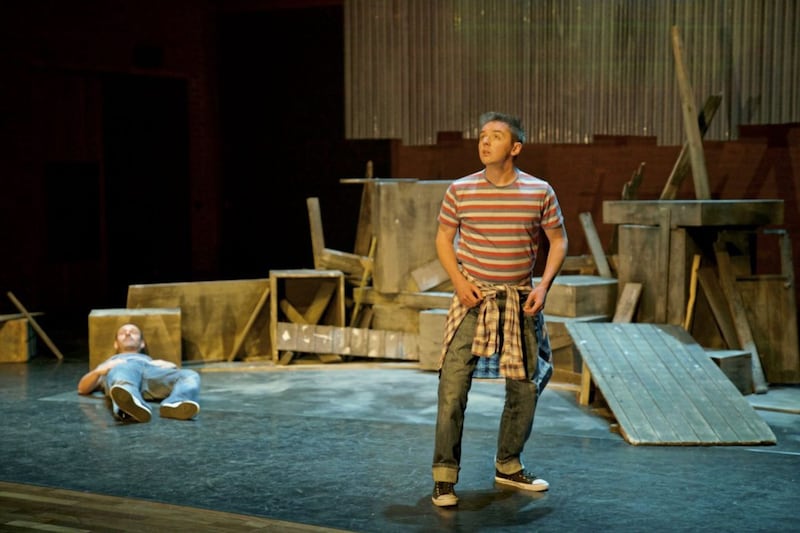Mojo Mickybo
The MAC, Belfast
Until April 10
THE idea of examining the impact of the Troubles via two nine-year-old boys' games and rolling down hills and swearing a lot is very clever and rather Dennis Potter.
Owen McCafferty's genius, early slice of theatre, Mojo Mickybo, does just that. Brilliantly, especially in the Bruiser production which has returned from London to light up The MAC's main stage.
The revival of this play which lasts just shy of an hour but covers the beginning of events that scarred a people over decades is outstanding, one suspects award-winning.
As the two boys from the green and orange sides of town, Michael Condron and Terence Keeley are totally believable, by turns touching and rude as young boys are.
They introduce themselves while digging with sticks - their eventual den is known as 'the hut'. And then run through the usual Belfast routine of 'where do you come from?'.
At this stage, with Condron's Mojo squirming believably, Keeley's Mickybo cockier, the characters are unaware of the politics. They don't know the reasons for the fires and bombings affecting their 1970 world. "Why is there a fire?" they ask their parents.
Mojo and Mickybo are often observers, watching as the grown-ups mess things up. At one point, the boys become aware of the threat and magnify it, in the way of kids. We're all going to get killed in our beds, one says, with his mate indicating the way to avoid this fate - don't sleep in your bed.
As McCafferty notes, he felt the best way to illustrate the "absurdity of sectarianism" was "through the "innocence of children".
This is a portrait of a friendship that is second to none - in a way, a kind of love story. It's significant the lads adopt the personas of Butch Cassidy and the Sundance Kid, pretend gunning everyone and taking a memorable trip to Newcastle, their Bolivia.
These sequences rang true, with excellent use of images onscreen behind Stuart Marshall's realistic set with corrugated iron marking its urban landscape.
Throughout the audience laughed in recognition. The physical comedy and multi-roling, with Mickybo turning in to one of the droll gossiping women with fegs, was superlative. In fact, I don't think I have seen better shifts of tone onstage.
The play ends in heartbreak, with a death and the division of our eponymous heroes into their respective camps. Mickybo no longer hangs out with his friend but the older, mean guys, There's a dispute over a supposedly stolen bicycle and Mojo is left disconsolate. As adults, the two great pals recognise each other and walk on by.
Lisa May directed with characteristic Bruiser flair and energy. Seeing this underlined the importance of theatre. To use the vernacular, it was wheeker.
Jane Hardy







